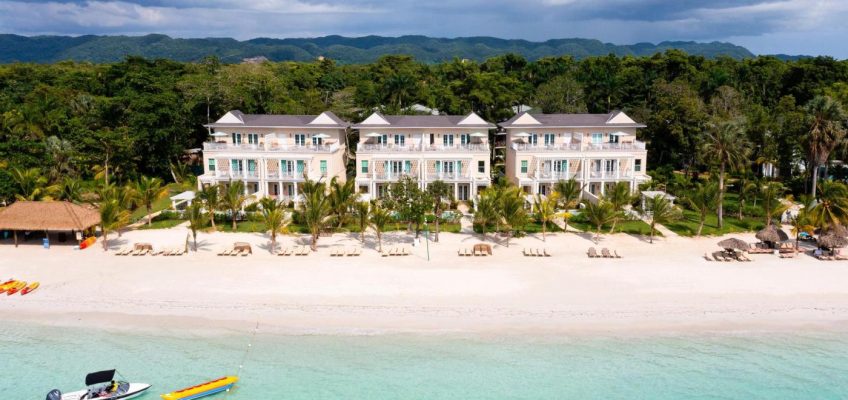By Noreen Kompanik, TravelPulse
I admit that prior to the COVID pandemic, I was not a big fan of the all-inclusive resort. And to be honest, the idea of an all-inclusive can be a bit polarizing.
On our vacations with family and friends, traveling to a destination always meant exploring all that the destination had to offer. This included history, culture and, of course, the local cuisine. The idea of having all our meals at one resort wasn’t something we were really interested in, and it didn’t hold much appeal.
At the time, it seemed that only “certain types of travelers” benefited from an all-inclusive.
Then came COVID. When travel began to open up again, I stayed at my first all-inclusive resort in Mexico. If nothing else, safety played a huge factor in opening my eyes to the benefits of an all-inclusive, especially with my background in nursing.
The experience was positive and since that visit, I and my family and friends have chosen to book some of our vacations in an all-inclusive. But “some” is definitely the operative word here.
And it still brings up the question, are all-inclusives worth the cost? The answer is, “It depends.”
Working with a handful of travel agents who book both all-inclusive and non-inclusive travel, we discussed the pros and cons of the all-inclusive and the type of traveler most likely to book this type of vacation.
Here are the benefits of an all-inclusive:
Great fit for families and groups
An overall stress-free vacation in places designed to feel like paradise
Opportunity to relax, unplug and truly enjoy a vacation experience
A staff more fluent in English, making for easier communication
Comprehensive packages that include meals, drinks, alcoholic beverages and activities
Way to break into an unfamiliar destination in a safe, secure way
Cost effective and the ability to stay more “on budget”
Numerous on-site activities for those who love to stay busy ranging from fitness classes to tennis and beach volleyball
May eliminate the need for your own personal transportation
Now, let’s look at the cons:
Not a good fit for the non-alcohol drinker or one that’s only a casual imbiber
The food may be pedestrian, catering more to the North American traveler with options to include pizza, burgers, hot dogs, spaghetti and meatballs. This isn’t a criticism of the menu options, but when you’re in Mexico or the Dominican Republic, do you really want the cuisine you can get anywhere in the U.S.?
Restaurant choices may be limited. Some all-inclusives offer several different dining venues. Others may not. And non-resort dining in the local economy could be considerably less expensive.
Inability to authentically experience local culture and cuisine.
Not a good fit for the adventure traveler who may easily be bored after a few days at the resort
Negative impact on the local community as some all-inclusives have come under fire for low wages, poor working conditions for local staff and not being environmentally conscious.
Hidden charges that include higher prices for premium alcohol or other menu items to include lobster and certain cuts of high-quality meats not included in the program.
So, what should travelers look for in an all-inclusive?
It’s wise to work with a seasoned travel agent who has visited the resort or has in-depth knowledge of the destination. There’s nothing more disappointing than spending money on a vacation that doesn’t meet your expectations.
Related Articles
Spring break prices hit record high – these affordable destinations are trending
The Pacific diving paradise of Palau wants travelers to explore its cultural depths, too
5 Black history road trips to take this February
Top 10 destinations for epic whale watching around the world
Sustainable travel: Discover eco-conscious winter escapes in Colorado
“Know before you go” and be sure to read the fine print of a package before you arrive (though ideally before you book).
Travelers should look for a variety of dining options which encompass a range of venues while still embracing the local food culture. Dining is one of the highlights of a vacation and should be satisfying and enjoyable.
Most all-inclusive resorts are in stunning locations known for their weather, culture and picturesque surroundings. While some travelers may want to just chill at their resort, it’s great to research off-property options that may include Mayan ruins, eco-tourism and other unique adventure opportunities should you decide to do some exploring.
Finding the right all-inclusive resort in the right destination with the perfect balance of food, culture and activities that meet your needs and budget makes all the difference on how you’ll view and value your vacation experience.
©2025 Northstar Travel Media, LLC. Visit at travelpulse.com. Distributed by Tribune Content Agency, LLC.


Leave a Reply